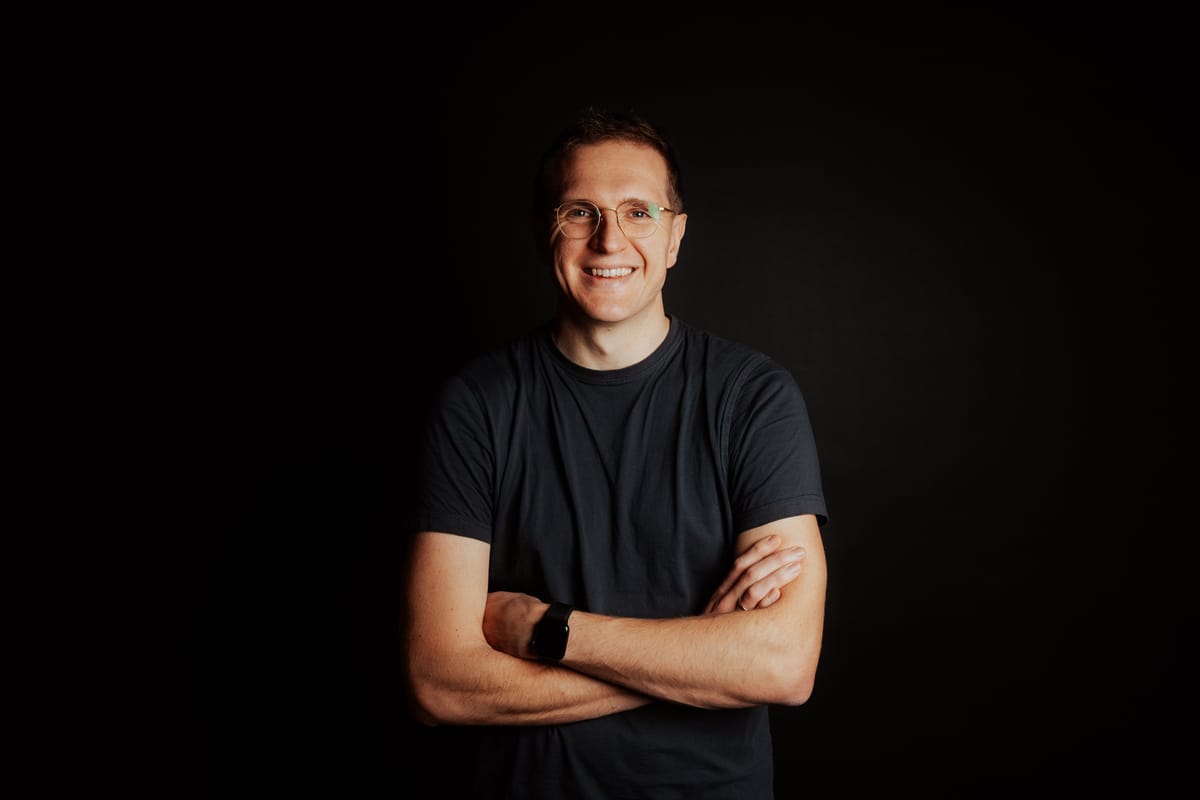Discover how everyday trauma becomes both rocket fuel and invisible barrier in high achievers—and the 3-step method to harness its power.
🚀 A Return to Courage: What the German Startup Awards Reminded Me About Optimism
I attended the German Startup Awards dinner this week, and something unexpected happened—I felt genuine excitement about the future for the first time in months.
It wasn't the champagne or the ceremony. It was watching Julia Freudenberg from Hacker School describe her work with unfiltered passion: "We're just making awesome shit." It was hearing Francesco Sciortino of Proxima Fusion calmly state: "With nuclear fusion technology, we are moving from an energy-scarce to an energy-abundant world." It was seeing founders tackling atmospheric CO₂, making solar energy mass-market ready, reimagining education.
I've spent recent years focused on the hard realities of entrepreneurship—burnout conversations, scaling challenges, team conflicts. Important work, but it can cloud the bigger picture. This week reminded me why I chose this path: the entrepreneurs I work with are building the infrastructure for optimism.
In times when headlines feel heavy and uncertainty runs high, events like these matter. They're reminders that courage isn't the absence of fear—it's the decision to build despite it.

GSA25 Winners
Now, back to our regular programming—and this week's topic connects perfectly to that infrastructure of optimism I mentioned:
What you'll learn:
Why 69% of successful entrepreneurs are unknowingly sabotaging their own success
The simple question that reveals whether your ambition is helping or hurting you
How to transform your deepest wounds into sustainable competitive advantage
The Story: A Discovery at 35,000 Feet
A few weeks ago, I was on a transatlantic flight returning from a client offsite in NYC. I had picked up a few books at McNally Jackson Books Seaport (garden of Eden for book nerds like me—top recommendation!).
Somewhere over the Atlantic, I leafed through Mark Epstein's "The Trauma of Everyday Life" and found myself unexpectedly captivated. For months, I'd been working with a coach, exploring my relentless drive and the persistent feeling that "it's never enough."
Epstein's words about "everyday traumas" resonated deeply—these aren't capital-T Traumas but experiences that nonetheless profoundly shape how we move through the world. His insights echoed Dr. Gabor Maté's research on how we all carry wounds from ordinary life experiences that seem minor but create lasting patterns.
Maté's core insight hit me: we're all walking around with invisible wounds that drive our biggest decisions. The question isn't whether you have trauma—it's whether you're aware of how it's driving you.
As I read, I began thinking about the entrepreneurs I work with. According to a study of 370 British entrepreneurs, 69% trace their drive back to difficult childhood experiences. How many were unconsciously running on what David Spinks calls "bad fuel": motivation that propels forward movement but extracts a devastating personal cost?
The cost of bad fuel isn't just personal. It's strategic. I've watched CEOs make impulsive acquisitions to prove their vision, burn through talented teams with impossible demands, and walk away from profitable exits because "it wasn't big enough." Bad fuel doesn't just burn dirty - it burns everything down.
The Insight: Good Fuel vs. Bad Fuel
In six years coaching over 200 entrepreneurs, I've witnessed David Spinks' "fuel" concept destroy more promising leaders than market crashes or funding shortages:
Bad Fuel: Trauma-driven motivation that sounds like "I'll prove them wrong," "I'm not good enough yet," or "I can't slow down or they'll see I'm a fraud."
Good Fuel: Purpose-driven motivation that sounds like "This matters beyond me," "I'm creating something meaningful," or "This aligns with who I am."
Here's what I've observed: entrepreneurs running on bad fuel often achieve remarkable early success. Their wounds become rocket fuel. But bad fuel burns dirty—it creates anxiety, perfectionism, and eventually burnout.
The entrepreneurs who build sustainable, fulfilling businesses? They learn to shift from bad fuel to good fuel. They stop running from their past and start running toward their purpose. (Yes, that means uncomfortable self-reflection and personal development. It’s a lot of work.)
The transformation isn't about eliminating drive. It is about changing what drives you.
Your Quick Win: The 14-Minute Fuel-Switch Protocol
Here's how to transform your relationship with performance motivation:
1. Identify Your Pattern (2 minutes) Answer: "What am I trying to prove?" This question reveals your trauma-based motivation.
2. Create Your Reset Ritual (10 minutes) Design a practice for when you notice "bad fuel" driving you. Here’s what helps me:
Take a walk outside (I circle my Berlin office block when I need to reset)
Meditate for a few minutes (when I want to shut out outside noise, I use an Endel soundtrack)
Then ask: "What would I do if I had no fear?"
3. Define Your "Good Fuel" Statement (2 minutes) Complete: "Beyond validation, what truly matters to me about my work is _______."
This isn't “just self-help”.
It's competitive strategy.
These entrepreneurs building the infrastructure for optimism? They've learned to run on good fuel.
What's your experience with "good fuel" versus "bad fuel"? Reply and tell me—I read every response.
INTERESTED IN MORE OF MY WORK?
If you’ve made it this far, perhaps you’d be interested in my other writing and resources:
1. Most read all time: Why I Stopped Using OKRs
3. New Cheat Sheets every month, full collection in this FOLDER. (20 in total)
Want to work with me as a Coach & Catalyst for your business? Schedule a call HERE. Available in Q4.
Bachmann Catalyst is a human-centric CEO advisory boutique. We specialize in guiding growth-stage CEOs through the most pivotal challenges at the intersection of strategy, funding, and leadership. By balancing business outcomes with team dynamics, we help leaders scale with clarity, confidence, and purpose.
If this email was forwarded, click HERE to subscribe to the newsletter.

